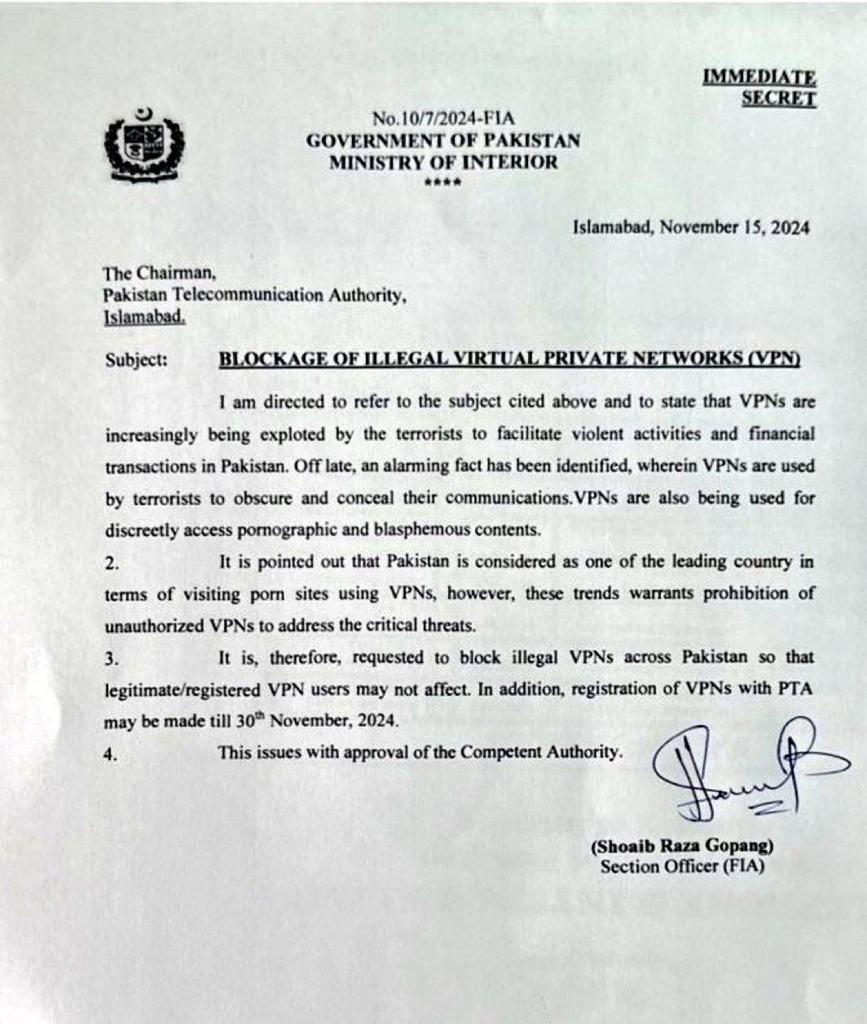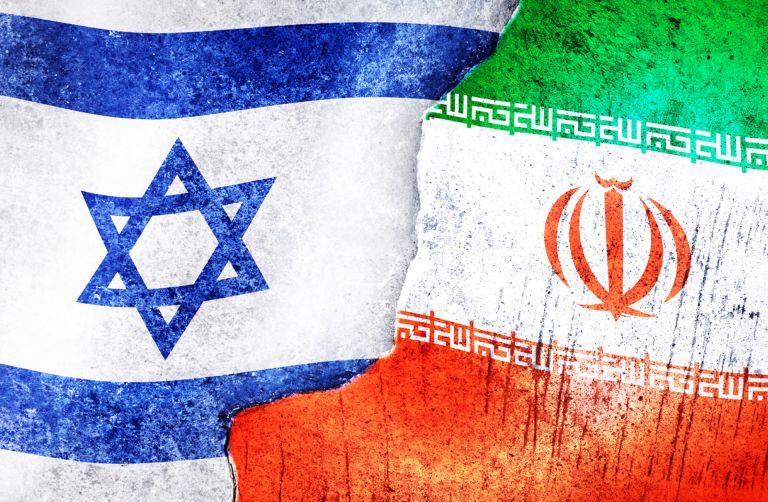The 15th of November 2024 saw the Interior ministry of Pakistan directed the Pakistan Telecommunication Authority (PTA) targeting unregistered Virtual Private Networks (VPN) due to the terrorist organisations and possibility of illegal activities such as untraceable finances. The announcement of the PTA comes about at a time when the pressure to manage the digital space especially with the recent surges of VPN usage in circumventing government internet control policies has become stronger.

This ad has been posted by the PTA, which has pushed the date for VPN registration to November 30, 2024, even if the registration system was originally introduced in 2016. However, this authority for the registration now hangs over the heads of businesses, freelancers and the IT sector respectively, all of whom rely on VPNs for safe provision of information. The government challenges that this kind of VPNs enables users to access content that they should expect to find blocked, such as social networks like: X, which were suspended earlier this year for security reasons.

VPNs like Tesla Proxy Pro, NordVPN, Super VPN have been made unavailable across the territory, hence the greater number of users are unable to avail them. For some of the users, though, VPNs such as ProtonVPN, Tor and Cloudflare Warp are still operational. The PTA has been specific that it is… the unregistered VPNs that it targets and more or less the business and permitted users can register these services and it can be put to genuine use as it was meant to accomplish.
The Telecom Authority’s focus on VPNs also raises serious concerns about freedom of expression. At The People’s Times (TPT), we analysed the broader implications of these actions. Many VPNs, including popular ones like NordVPN, have been critical for maintaining online privacy and security. Without such tools, users can face reduced access to essential online services. While there are still some VPN services that remain operational (such as Tor and Proton VPN), the majority of high-speed VPNs, including NordVPN, are now blocked in Pakistan, severely limiting access.
As part of this crackdown, some observers argue that the government’s move to control VPN access could be seen as an effort to limit information flow, both internally and externally. The ability of Pakistanis to freely express themselves online or access content critical of the government could be increasingly restricted as authorities set up stricter digital borders. This poses a significant challenge for independent journalism, digital activism, and free speech, both domestically and on the international stage.
Islamic Views on VPN Usage.
The religious implications of the VPN ban have also sparked debate within Pakistan. On November 15, 2024, the Council of Islamic Ideology (CII) issued a Fatāwā (Islamic ruling) declaring that VPNs are “un-Islamic” and violate šarīʿah as they allow users to bypass censorship mechanisms designed to maintain moral standards. This pronouncement led to a public outcry from many scholars, including the renowned Maulānā Tariq Jamil, who stated that if VPNs are considered Ḥarām (forbidden), then phones, which are essential tools for communication, would also be Ḥarām.

However, just days later, on November 20, 2024, the CII clarified that there had been a typographical error in their previous Fatāwā. The council retracted its earlier stance, asserting that VPNs, whether registered or unregistered, do not inherently violate Islamic law. Chairman Dr. Raghib Naeemi stated that the original fatwa had been misinterpreted and stressed that social media and digital platforms should adhere to Islamic values, particularly by promoting national security and preventing misuse for extremist purposes.
The rapid back-and-forth regarding Islamic rulings on VPNs underscores the tension between religious interpretations and modern technological usage. While the CII’s clarification may have alleviated concerns, the broader issue remains whether the government’s efforts to regulate VPNs are more about maintaining control over the digital landscape than adhering to Islamic principles.
The PTA’s actions to block unregistered VPNs and control internet access raise serious questions about the balance between national security and the protection of individual freedoms. As seen with The People’s Times investigation, the full-scale enforcement of the VPN ban could lead to further digital censorship, restricting access to information both within Pakistan and globally. While national security and preventing illegal activity are important, the crackdown on VPNs also risks silencing voices and limiting the flow of independent information—a concerning development in the digital age.
Pakistan’s government faces the challenge of balancing its security goals with its obligations to uphold citizens’ rights to free expression, access to information, and online privacy. The final outcomes of these regulations will likely shape the country’s digital landscape for years to come.
TPT will come with more content on VPNs soon…









Leave a Reply